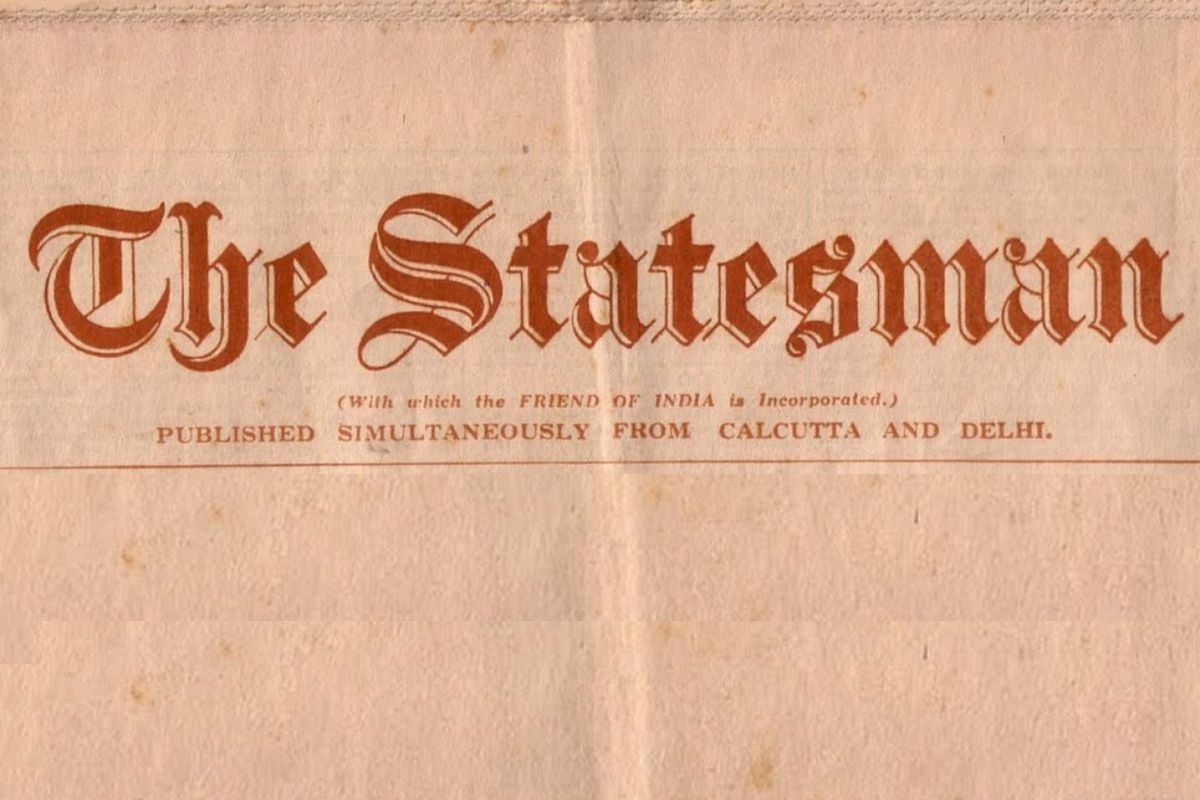A New Day, A New Dawn
There is a surprise for the readers. A special Poila Boishakh gift from none other than West Bengal chief minister Mamata Banerjee. Who has written a piece for this special edition.
On this day a century ago, these were some of the news items The Statesman readers got to read about India and the world.

OCCASIONAL NOTE
Judging by a communication received from the general secretary of the Anglo-Indian Empire League at Allahabad there must be some misapprehension by that body on the subject of orders stated to have been issued by the military authorities for the conversion of the Anglo-Indian Battery into an infantry unit. Telegrams protesting against the change have been sent to the Viceroy and the Commander-in-Chief, and it is declared that the Anglo-Indian and Domiciled European community have learned of the orders in question with “deep dismay,” while the conversion is referred to as an “extreme humiliation.” One can but ascribe the sense of humiliation and dismay to the abnormal heat of the weather, for which indeed all fellow-sufferers will make every allowance. The executive of the Anglo-Indian Empire League appears to be afraid that the public will jump to the conclusion that the reason for the change must be general inefficiency on the part of the battery. The efficiency of the battery, however, has been acknowledged on all hands in the most public manner by the unstinted encomiums of the authorities upon its services. The idea which ordinary observers would naturally form is simply that the military authorities think the corps will now be more useful as infantry than as an artillery unit. Such a change is not unprecedented, and presumably there is nothing to prevent the battery from being reconstituted as an artillery unit when this is wanted. To imagine that any slur on the efficiency of the past work of the battery is implied by the change is surely preposterous.
TEA GARDEN RECRUITER AND A PONY
Advertisement
A rather interesting case was decided by Mr. J.N. Mittra, Deputy Magistrate, in which a sardar of the Samanbeong Tea Estate stood charged with the theft of a pony belonging to the Lepchoo Tea Estate. It transpired in evidence that the sardar came to recruit coolies from other gardens for his own, among them the Lepchoo Tea Estate, as is the custom in this district on payment of the coolies’ debts. The complainant, a cooly of Lepchoo, alleged that the accused made no payments to him but snatched away his pony. The defence was that the complainant wanted to shift to Samanbeong, was paid, and himself left the horse with the accused as security. The prosecution witnesses included Mr. Languore of the Lepchoo Tea Estate. Mr. G. Mitra, for the defence, argued that in any event no dishonest motive had been proved. The court, agreeing, acquitted the accused.
INDIAN ELECTRICITY ACT
The abstract of proceedings of the Bengal Chamber of Commerce states: The views of the Chamber have been invited by the Government of Bengal, Public Works Department, on the provisions of a Bill, introduced in the Imperial Council by the Hon. Mr. V.J. Patel, to amend the Indian Electricity Act, 1910. Under the India Electricity Act of 1903 there was an obligation on the local Government to consult every local authority, as a preliminary measure, on the merits of an application for a licence; but this was abolished in the 1910 Act. The Bill proposed to reenact the provision and also to provide that when a local authority put up a rival claim for a licence it should receive first consideration on the ground that the local authority is the proper body entrusted with the interests of the residents of the local area, and that any claim by it should have preference to one put forward by, say, a joint stock company.
RACING IN WESTERN INDIA
BOMBAY, MAY 24
During the last two racing seasons in Western India the desirability of thinning down the large fields of Arab horses which turned out for every Arab race was urged. The executive of the Western India Turf Club also recognised that the performance of most of this class was not up to the standard of high class racing and in its first attempt to weed out inferior animals the third division of Arabs was abolished, but this step was of no avail for the classes thus wiped out were again in full evidence in the second division. A committee was recently appointed to work out reform in this respect, and they have now decided to restore third class Arab racing as the only means of reducing the fields. The Western India Turf Club has decided to raise the fee for changing the name of a horse from Rs 25 to 150 for each change in order to check the abuse of frequent changing of the names of horses which was becoming a prevalent practice of late.
POSTAL STRIKE OVER
The postal strike is over. The hundred men or so who held out till Friday, came in yesterday morning, and now all told only about half-a-dozen men are holding back. One effect of the strike has been to reveal the strength of voluntary organisations in Calcutta, and it may well be presumed that in case of similar trouble in future, the authorities will freely avail themselves of help from these sources.
Advertisement